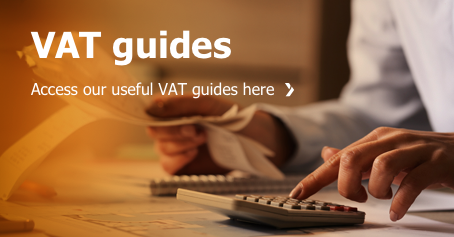Ecuador VAT Guide

Ing. Germán Moya
Ecuador VAT specialist
This guide provides an overview of the Ecuadorian Value Added Tax (VAT) system. It focuses on how it affects foreign companies trading in Ecuador. It is
general in nature and is unlikely to cover the particularities of your case. It should be read as such and not construed as advice. If you would like
advice on how VAT affects your business, please contact a VAT specialist at Kreston Global Ecuador.
- What is the name of the tax?
- What is the tax authority?
- What type of tax is it?
- What is this for?
- What are the VAT rates?
- What does a VAT number look like?
- Is there a registration limit?
- When should an entity not established in Ecuador be considered as such?
- When must an entity not established in Ecuador register?
- Any special rules?
- Does a non-established entity need a fiscal representative?
- How often must VAT returns be filed?
- Are penalties imposed for late registration?
- Are sanctions imposed in other circumstances?
- Can VAT incurred by foreign companies be recovered?
- Can VAT be deducted?
- Do I need to issue an invoice?
What is the name of the tax?
VAT – Value Added Tax
What is the tax authority?
SRI – Internal Revenue Service
What type of tax is it?
It is a tax levied on the value of local transfers or imports of personal property, at all stages of commercialization and on the value of services rendered.
What is this for?
VAT is payable on any local transfer or importation of goods and on the rendering of services.
In the case of imports, the VAT taxable base corresponds to the sum of the CIF value (Cost, Insurance and Freight) plus taxes, tariffs, fees, duties and surcharges included in the import declaration.
What are the VAT rates?
Rates:
12% – default (standard) rate
0% – zero rate
Exempt:
There are also transfers that are not subject to VAT.
12% – It is applicable to any local transfer or importation of goods and in the rendering of services, when no other specific rate is indicated.
0% – Zero tariff:
• Exports, food products, electric power, transportation, health, housing rental, education at all levels, drinking water, sewage, among others.
Exempt from VAT, for example:
• Transfer of shares, partnership interests and other securities, contributions in kind to companies, donations to public sector entities
and bodies.
What does a VAT number look like?
Individuals 09XXXXXXXXXXXX001 or Legal Entities 099XXXXXXXXXX001
Is there a registration limit?
None
When should an entity not established in Ecuador be considered as such?
A permanent establishment of a foreign company is understood as any fixed place or center located within the national territory, in which a foreign company carries out all or part of its activities. This implies that the foreign company keeps its domicile in its country of origin, but, through this entity, the Ecuadorian State allows it to carry out certain activities within the national territory, in exchange for being able to tax the profits it generates.
When must an entity not established in Ecuador register?
Not every economic activity generates a transaction that could be configured as a permanent establishment.
A foreign company will have a permanent establishment if it maintains “fixed places or center of economic activity.
Any special rules?
There is a list of activities that do not fall under the figure of permanent establishment, such as: the use of the facilities for the sole purpose of exhibiting goods or merchandise belonging to the company, among others.
Does a non-established entity need a fiscal representative?
Representation in Ecuador is required. From a resident in Ecuadorian territory (does not require Ecuadorian nationality).
How often must VAT returns be filed?
Monthly or Semiannual.
Are penalties imposed for late registration?
There is a gradual penalty model, so that the penalty amounts vary according to the type of infraction and the type of taxpayer.
Are sanctions imposed in other circumstances?
When there is a tax payable, a fine of 3% of the tax payable is generated for each month or fraction of a month of delinquency of the tax payable.
The fine shall not exceed 100% of such tax.
Can VAT incurred by foreign companies be recovered?
The tax legislation contemplates a term of 5 years to grant the refund of this tax depending on the type of taxpayer and operation, among the most important ones we have is the refund for exporters of goods and refund for tax credit for VAT withholdings.
Can VAT be deducted?
VAT on sales is deducted from VAT on purchases for a specific period (monthly or semi-annually). A credit balance may be generated and offset in future years.
Do I need to issue an invoice?
Invoices must be issued when goods are transferred, services are rendered, or transactions taxed with VAT at any rate are carried out.

